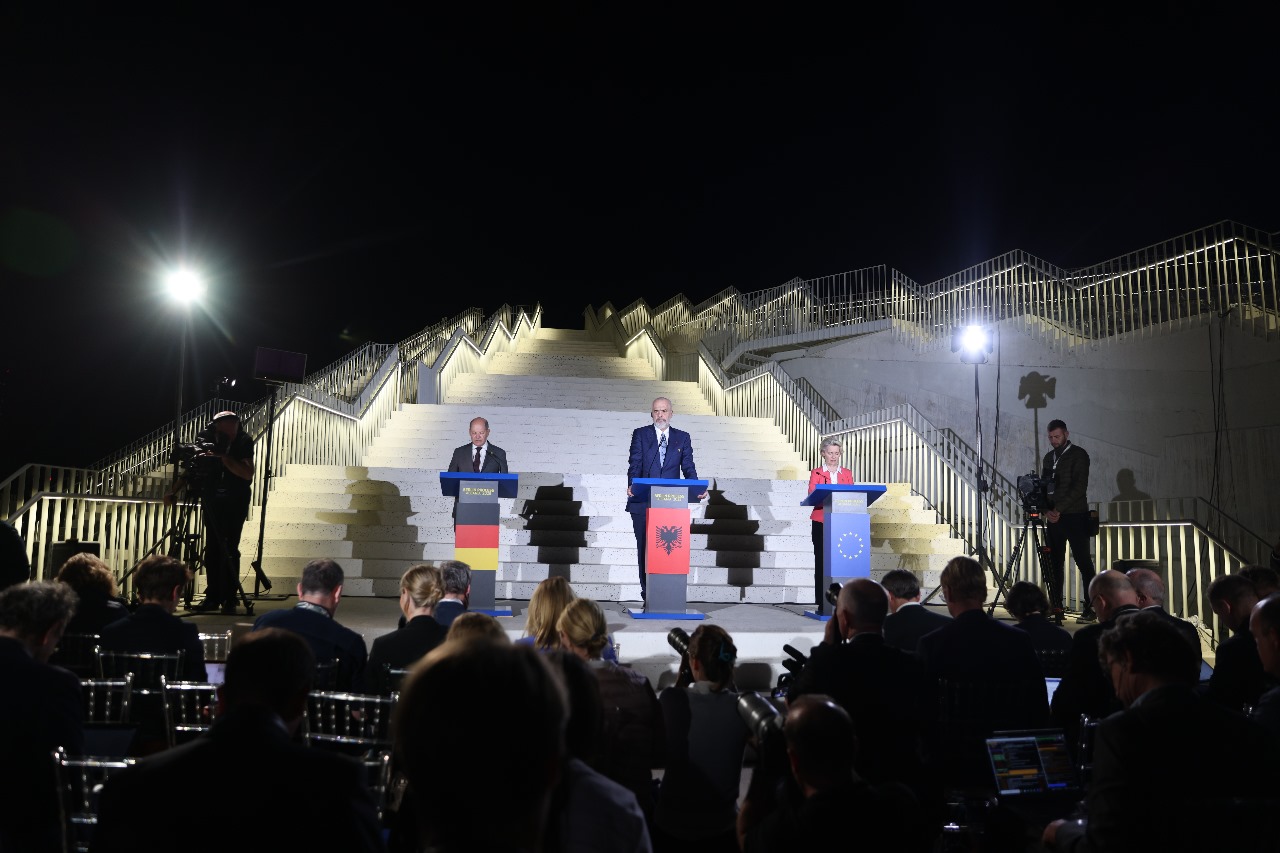“The future of the Western Balkans lies in the European Union. This promise stands. And it applies today more than ever.” That’s what Chancellor Scholz said at the Western Balkans meeting in Tirana. For the first time in the history of the Berlin Process, a country from the Western Balkan region hosted a summit meeting, Albania.
It is “a good sign” that with the summit in Tirana the Berlin Process took place on site in a Western Balkan country for the first time. Federal Chancellor Olaf Scholz said this at a press conference with Albanian Prime Minister Edi Rama and European Commission President Ursula von der on Monday evening in the Albanian capital.
Important Berlin process
It is even better that all the region’s prime ministers have come to Tirana. This illustrates the great importance of the Berlin Process, which is intended to bring the six Western Balkan states closer to the European Union. “It is indeed time for that,” affirmed the Chancellor.
Scholz strongly condemns violence.
With a view to the recent tensions between Serbia and Kosovo, Chancellor Scholz warned against concealing current setbacks to the rapprochement process in the region. “It was only a few weeks ago that police officers in Kosovo were brutally attacked, one officer was killed. We condemn this in the strongest possible terms,” he made clear.
Achieve noticeable improvements.
There is therefore no way around regional cohesion and the lasting solution to “conflicts that have been simmering for far too long,” warned the Chancellor. According to Scholz, this requires concrete and noticeable improvements for everyone who lives in the Western Balkans: “Agreements that make everyday life easier, bring citizens together and – very importantly – agreements that create the necessary trust.” The Berlin Process have been making an important contribution to this since 2014.
Concrete decisions in Tirana.
Chancellor Scholz then went into more detail about four specific agreements that had been agreed in Tirana.
- Point 1: Climate change also and particularly affects the countries of the Western Balkans. “With a regional climate partnership between Germany and the Western Balkans, we want to specifically support the fight against climate change and the use of renewable energies. Germany will co-finance this with a total of 1.5 billion euros by 2030,” said Scholz.
- Point 2: “The countries of the Western Balkans must and want to move closer together.” This also applies to small border traffic. The three mobility agreements that were signed in Berlin last November have now been ratified by almost all states and are now applicable. Scholz: “An additional (fourth) mobility agreement was signed today, with which four additional professional qualifications are mutually recognized.”
- Thirdly, Germany is supporting the regional youth cooperation office “RAIKO” with 1.2 million euros and the new youth culture fund with 300,000 euros.
- And fourthly, the Federal Government is providing an additional 73 million euros for a new “Albania Climate Program” project , which is intended to promote the integration of renewable energies, the Chancellor informed.
Chancellor supports EU membership ambitions.
“The future of the Western Balkans lies in the European Union. This promise stands. And today it applies more than ever.” With these words, the Chancellor expressed his support for the EU accession prospects for the six Western Balkan countries.
Each country willing to join has the speed of the process in its own hands, Scholz continued. “The countries have to get ready for the EU . The key to this is reforms, which we discussed at length again today.”
Celebrate your tenth anniversary in Germany.
Scholz described the Berlin Process as a success story. Scholz said he was determined to “add more chapters to this story with our German commitment.” He looked ahead to the trial’s tenth anniversary next year. “We want to celebrate it properly – and hold the next meeting in Germany. I look forward to it.”







